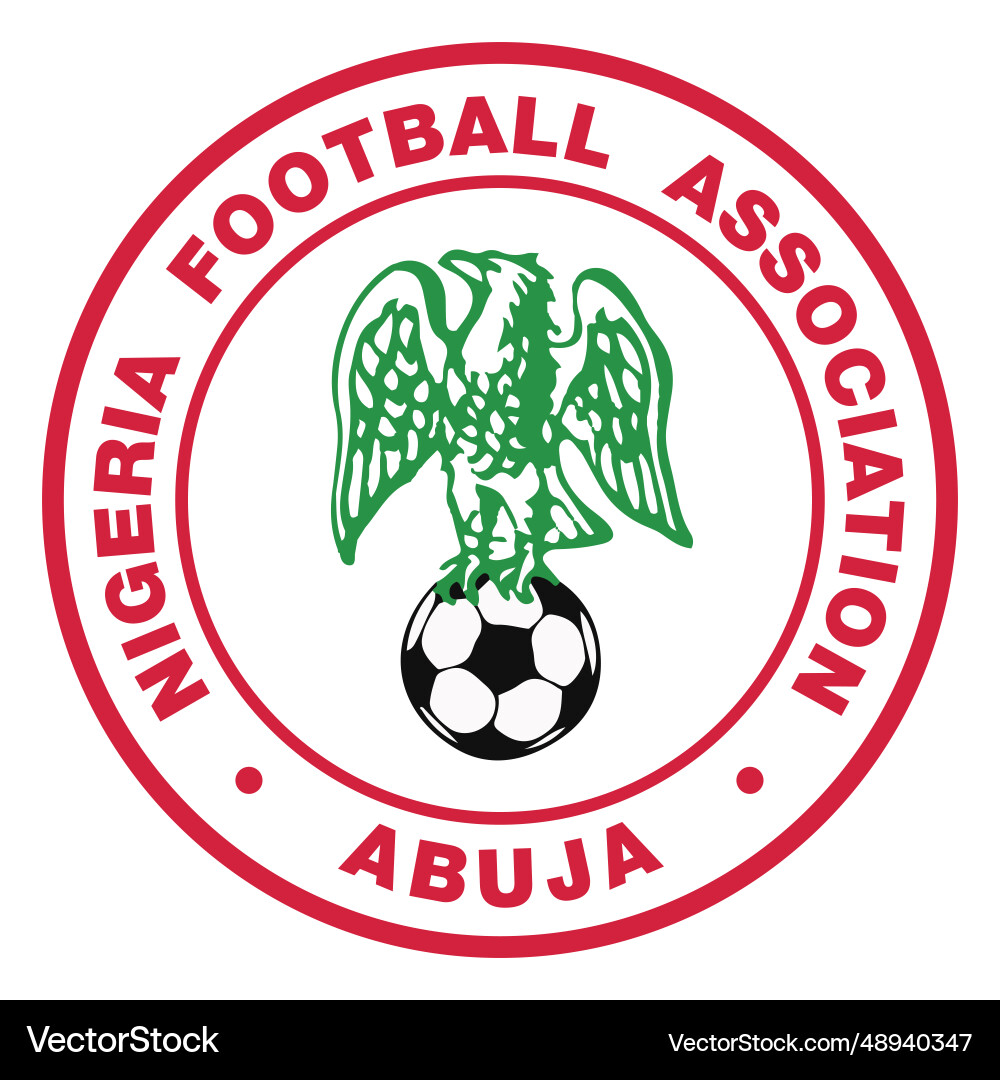
Nigerian Football
FollowOverview
-
Founded Date mayo 8, 1939
-
Sectors Médico Veterinario y Zootecnista
-
Posted Jobs 0
-
Viewed 353
Company Description
When Brought Football In Nigeria? The Story Of Soccer In Nigeria
A massive 67% of Nigerians view Football, which shows how much the sport influences Nigerian culture. Football’s journey in Nigeria began over 100 years earlier, shaping the nation’s sporting landscape.
Football in Nigeria dates back to the early 1900s. British colonisers brought the sport to the nation in 1904. The very first taped football match occurred that exact same year, kicking off Nigeria’s abundant footballing history of football in nigeria.
By 1950, Football had become Nigeria’s nationwide video game. Its quick increase led to many clubs and associations forming in the early 1900s. This development boosted Nigerian pride and assisted motivate political liberty movements.
Nigeria’s football tradition now reaches beyond its borders. Over the years, the country has produced first-rate talent, and Nigerian youth groups have actually won the FIFA U-17 World Cup five times.
The Super Eagles, Nigeria’s national team, are a force in African Football. They typically receive significant competitions and make their mark internationally.
The British Colonial Introduction of Football to Nigeria
Football got here in Nigeria during the British colonial era. It quickly captured the hearts of locals, marking the start of an abundant footballing tradition in the nation.
The First Football Match in 1904
The first football match in Nigeria took place in June 1904. It was between Hope Waddell Training Institution and the team of HMS Thistle. The Nigerian team won 3-2, triggering a nationwide passion for the sport.
Hope Waddell Training Institution vs HMS Thistle
I hope the Waddell Training Institution in Calabar played a key function in early Nigerian Football. Their success over HMS Thistle’s crew revealed the talent of Nigerian gamers. This match set the stage for Football’s development in the nation.

Early Football Club Formation (1906-1932)
After the 1904 match, Football’s popularity soared. From 1906 onwards, early football clubs started forming, and this grassroots motion spread out the sport throughout nigeria professional football league.
The Lagos District Amateur Football Association (LDAFA) was developed in 1932. The LDAFA marked the start of organised Football in Nigeria and paved the way for the sport’s future success nationally and internationally.
Who Introduced Football in Nigeria
Football arrived in Nigeria in the early 20th century. British colonisers brought this beloved sport to the West African nation. It rapidly ended up being a passion that shaped Nigeria’s sporting landscape for generations.
Role of British Colonisers
British colonisers played a vital function in Nigeria’s football history. The very first taped match happened in June 1904. Hope Waddell Training Institution dealt with the team of HMS Thistle.
The Nigerian group won 3-2. This victory marked the beginning of an abundant football tradition in the country.
Development of First Football Association
The Lagos District Amateur Football Association (LDAFA) was developed in 1932. It prepared for organised Football in Nigeria, which paved the way for the Nigerian Football Association (NFA).
The NFA was founded in 1945. It ended up being the national governing body for football history and manage its development throughout the country.
Development of Local Football Culture
Football rapidly settled in Nigeria, ending up being the national sport by 1946. Its ease of access and easy rules assisted it spread out rapidly. Regional communities welcomed the game, forming their groups.
This grassroots interest laid the foundation for Nigeria’s future success. The country’s passion for Football grew, causing accomplishments on the worldwide phase.
“Football became more than just a sport; it progressed into a vital Nigerian culture and identity element.”
The British colonisers’ intro of Football sparked a sporting transformation in Nigeria. Football’s journey mirrored the nation’s growth from the first match in 1904 to the development of the NFA in 1945.
Today, Football stays an integral part of Nigerian life. It’s a testament to the sport’s enduring appeal and cultural significance in the country.
The Rise of Nigerian Football Administration
The Nigerian Football Association (NFA) was established in 1945. It played a crucial role in shaping Nigerian Football. In 1949, the NFA formed Nigeria’s very first nationwide football team.
In 1959, Nigeria joined the Confederation of African Football (CAF), which enabled it to participate in continental competitions. Nigeria likewise ended up being a FIFA member in 1960, joining the global football neighborhood.
The NFA, later relabelled the Nigeria Football Federation (NFF), organised national competitions. They produced the Nigerian Premier League and the Federation Cup, which became the highlights of domestic Football.
Football associations across Nigeria flourished under the NFF’s guidance. They nurtured talent and promoted grassroots development. Expert Football started in 1990 with sixteen club sides getting involved.
“Our mission is to revive football development at the national level and repackage the league in line with international finest practices,” mentions the Nigeria National League.
The Premier League was carried out in 2003. This relocation aimed to improve domestic football requirements and bring in more spectators and sponsors to national competitions.
Nnamdi Azikiwe’s Impact on Nigerian Football
Nnamdi Azikiwe, born in 1904 in Zungeru, Northern Nigeria, left an indelible mark on Nigerian Football. His influence formed the nation’s sporting landscape. Azikiwe’s enthusiasm for sports stemmed from his varied experiences and education abroad.
Establishment of Zik’s Athletic Club
In 1938, Azikiwe founded Zik’s Athletic Club (ZAC) in Lagos. This club became a symbol of African self-determination. ZAC played an essential role in establishing Nigerian Football.
It provided a platform for young athletes to showcase their abilities. The club promoted regional talent and fostered a sense of national pride.
The West African Pilot’s Influence
Azikiwe’s paper, the West African Pilot, played a substantial role in popularising Football throughout Nigeria. It extensively covered local matches, group news, and gamer profiles. This limelights helped grow the sport’s fan base.
Football as a Tool for Independence
Azikiwe saw Football’s prospective as a unifying force in the self-reliance motion. He used the sport to break down ethnic barriers, and Football became a symbol of Nigerian unity through his advocacy.
Azikiwe’s efforts connected Football to nationalism, contributing considerably to the sport’s growth and shaping its role in modern-day Nigeria.
“Football is not just a game; it’s a powerful nationwide unity and identity tool.”
Nigeria’s Journey to International Football Recognition
Nigeria’s football journey took a considerable leap forward in 1960. The country gained FIFA membership, marking its entry into global Football. This milestone accompanied Nigeria’s self-reliance from British rule.
FIFA Membership and First International Match
Nigeria’s first international match happened on 8 October 1949. They dealt with Sierra Leone and won 2-0 in a historic encounter. This triumph sparked enthusiasm for Football throughout the country.
Early Continental Competitions
Nigeria debuted in the Africa Cup of Nations in 1963. The competition, hosted by Ghana, saw Nigeria facing difficult opponents. These experiences proved valuable for the team’s development.
Nigeria’s determination settled in 1973. They clinched gold at the All-Africa Games, marking their first major continental success. 1976, they protected bronze at the Africa Cup of Nations in Ethiopia.
Nigeria’s football expertise grew in the 1970s. In 1978, they repeated their bronze medal feat in Ghana. 1980, Nigeria hosted and won its first Africa Cup of Nations title.
Evolution of Nigerian Football Governance
Nigerian football governance has seen considerable changes and obstacles since 1945. The Nigeria Football Federation has formed the nation’s football landscape, and its journey has actually been complicated and transformative.
From NFA to NFF
The Nigeria Football Association began in 1945. It became the Nigeria Football Federation in 2008. This change aimed to modernise the organisation’s structure.
In 2019, a costs was passed to recognise the NFF officially. It’s still waiting for governmental approval.
Development of League Systems
The NFF manages 3 primary leagues: the Nigerian Premier League, Amateur League, and Women’s League. These competitors form the foundation of Nigerian professional football league.
They promote talent and promote the sport nationwide. Nevertheless, obstacles like postponed seasons and venue conflicts continue.
National Team Formation
Nigeria’s Super Eagles national team was formed in 1949. They’ve received 6 FIFA World Cups and won 3 Africa Cup of Nations titles.
These achievements have actually enhanced Nigeria’s standing in international Football. The Super Eagles’ success has put Nigeria on the global football map.
However, Nigerian Football deals with ongoing obstacles. A study revealed high levels of corruption in football governance. This affects agreement awards and player choice.
These concerns highlight the need for reform. For the sport to prosper, transparency in the Nigerian football administration must improve.
Conclusion
Nigerian professional football league‘s legacy showcases the country’s resilience and passion. It started in 1904 with Hope Waddell Training Institute dealing with HMS Thistle. Ever since, Nigeria has become a powerhouse in African Football.
The sport’s growth reflects the nation’s journey from colonial guideline to independence. It has promoted a sense of national identity and unity. Nigeria’s global football acknowledgment is undeniable.
The Super Eagles’ gold medal at the 1996 Atlanta Olympics is an emphasize. Their outstanding FIFA World Cup efficiencies likewise stand apart. Nigeria has qualified for six World Cups.
In 1994, Nigeria achieved its highest FIFA ranking of 5th, solidifying its place on the global phase. Nigerian Football continues to progress with promising prospects.

Skills like Ahmed Musa and Kelechi Iheanacho shine in leading European leagues. This bodes well for the sport’s development. The Nigeria Football Federation guides the game’s progress.
Football’s enduring legacy in Nigeria motivates upcoming generations and guarantees an exciting future for the sport. The gorgeous game remains a source of national pride and unity.
FAQ
Who presented football to Nigeria?
British colonisers brought Football to Nigeria in the early 1900s. The sport rapidly ended up being popular and woven into Nigerian culture.
When was the first football match played in Nigeria?
The first taped football match in Nigeria happened in June 1904. Hope Waddell Training Institution played against the HMS Thistle crew. The Nigerian group won 3-2.
How did Football become Nigeria’s national sport?
Football’s basic guidelines and accessibility made it popular in Nigeria. By 1950, it was the national game, motivating pride and liberty movements.
What function did Nnamdi Azikiwe play in Nigerian Football?
Nnamdi Azikiwe, Nigeria’s very first President, was crucial in developing Football. He started Zik’s Athletic Club in Lagos in 1938, and his paper, the West African Pilot, linked football history to the self-reliance motion.
When did Nigeria sign up with FIFA?
Nigeria became a FIFA member in 1960, the exact same year it got independence. This significant Nigeria’s official entry into international football governance.
What is the Nigerian Football Federation?
The Nigerian Football Federation (NFF) governs Football in Nigeria. It progressed from the Nigerian Football Association, developed in 1945. The NFF organises nationwide leagues and competitions, including the Premier League and Federation Cup.
What significant successes has Nigerian Football achieved?
Nigeria has actually played in six FIFA World Cups. The Super Eagles national team has won three African Cup of Nations. They’ve likewise won gold in the 2nd All-Africa games.




